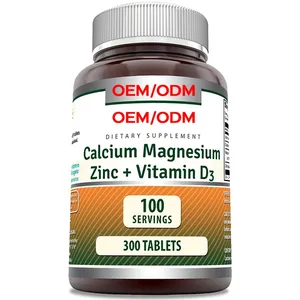Phổ biến trong ngành của bạn






Nickel sắt tấm xốp giá 50% 95% 98% cao độ xốp tinh khiết 99.9% Nickel bọt điện cực
12,50 US$ - 18,50 US$
Đơn hàng tối thiểu: 1 Cái







Iridium mạ MMO tráng Titan lưới anode platinized ti tấm giỏ điện cực cho muối chlorinator nước điện
13,00 US$ - 15,90 US$
Đơn hàng tối thiểu: 1 Cái
Vận chuyển mỗi chiếc: 20,67 US$







Nhà Máy Bán Hàng Trực Tiếp Trung Quốc Đồng Hàn Hợp Kim 0% Bạc Thanh Mua Đồng Hợp Kim Thanh Vật Liệu Hàn Hợp Kim
2,00 US$ - 2,50 US$
Đơn hàng tối thiểu: 1000 Kilogram
Vận chuyển mỗi chiếc: 210,23 US$







Sản Xuất Tại Trung Quốc Hiệu Suất Cao An Toàn Carbon Thép Kim Loại Que Hàn Điện Cực
0,81 US$ - 0,84 US$
Đơn hàng tối thiểu: 1000 Kilogram







Điện Cực Vonfram Lanthanium 1/16 "X 6" Hàn Điện Cực Hàn Tig WL15 Vàng Vàng
0,23 US$ - 0,25 US$
Đơn hàng tối thiểu: 10 Cái







Water Treatment PH8012 Antimony Electrode
30,00 US$
Đơn hàng tối thiểu: 1 Bộ
Vận chuyển mỗi chiếc: 21,39 US$






Điện Cực Ph Cảm Biến Ph Cảm Biến Điện Cực
Sẵn sàng vận chuyển
85,00 US$ - 110,00 US$
Đơn hàng tối thiểu: 1 Cái






Công nghiệp PH Antimon cảm biến thăm dò cho hydrofluoric axit PH cảm biến điện cực
53,84 US$ - 69,23 US$
Đơn hàng tối thiểu: 5 Cái
Vận chuyển mỗi chiếc: 11,85 US$






PHG-2081PRO Boqu Có Điện Cực Antimony Để Theo Dõi Máy Phân Tích PH Ứng Dụng Khắc Nghiệt
195,00 US$ - 270,00 US$
Đơn hàng tối thiểu: 1 Cái
Vận chuyển mỗi chiếc: 170,03 US$






Độ tinh khiết cao sửa đổi nhân tạo Graphite anode vật liệu bột Graphite điện cực giá cho Li-ion pin anode vật liệu
1.500,00 US$ - 2.450,00 US$
Đơn hàng tối thiểu: 5 Tấn
Vận chuyển mỗi chiếc: 1.074.960,00 US$






Acitek chất thải nước uống Antimon PH cảm biến analog đầu ra trực tuyến PH điện cực
88,00 US$ - 128,00 US$
Đơn hàng tối thiểu: 1 Cái






Đầu Dò Cảm Biến Antimon Ph Trực Tuyến Cho Cảm Biến Ph Điện Cực Ph Axit Hydrofluoric
Sẵn sàng vận chuyển
109,00 US$ - 149,00 US$
Đơn hàng tối thiểu: 1 Cái
Vận chuyển mỗi chiếc: 19,20 US$
Các tìm kiếm liên quan:






Bia sản xuất bia công nghiệp nhiệt độ cao Oxy hóa khử PH Antimon cảm biến hồ cá
100,00 US$ - 120,00 US$
Đơn hàng tối thiểu: 2 Cái












Chất Lượng Nước Trực Tuyến Điện Cực PH PH8011 Cho Cảm Biến Đo Axit Hydrofluoric (HF)
65,00 US$ - 150,00 US$
Đơn hàng tối thiểu: 1 Bộ






Daxi nhà máy bán hàng ISO9001 BNC PH thăm dò nhựa PH cảm biến OEM PH điện cực DX-120
53,84 US$ - 69,23 US$
Đơn hàng tối thiểu: 5 Cái
Vận chuyển mỗi chiếc: 41,21 US$






Top bán đảm bảo chất lượng điện cực giá khác Graphite sản phẩm Graphite và Graphite điện cực
1.500,00 US$ - 2.450,00 US$
Đơn hàng tối thiểu: 5 Tấn
Vận chuyển mỗi chiếc: 1.074.960,00 US$






Cảm Biến PH Thăm Dò Antimon Trực Tuyến PH8011
62,00 US$ - 122,00 US$
Đơn hàng tối thiểu: 1 Bộ
Vận chuyển mỗi chiếc: 19,71 US$




Giá rẻ xử lý nước thải ORP cảm biến điện cực pH Antimon probe BNC
107,00 US$ - 120,00 US$
Đơn hàng tối thiểu: 2 Cái






Nhà máy cung cấp bia sản xuất bia 0-130 độ nhiệt độ cao oxy hóa khử PH Antimon cảm biến
Sẵn sàng vận chuyển
80,00 US$ - 110,00 US$
Đơn hàng tối thiểu: 1 Cái






Axit hydrofluoric Antimon nước một dây mini PH Analog cảm biến PH cảm biến
68,00 US$ - 229,00 US$
Đơn hàng tối thiểu: 1 Cái






Daxi DX-120 công nghiệp PH thăm dò chống ăn mòn trực tuyến PH cảm biến chất lượng cao PH điện cực
53,84 US$ - 69,23 US$
Đơn hàng tối thiểu: 5 Cái
Vận chuyển mỗi chiếc: 41,21 US$





Đầu Ra Tương Tự Cảm Biến Ph Antimon
Sẵn sàng vận chuyển
85,00 US$ - 110,00 US$
Đơn hàng tối thiểu: 1 Cái
Vận chuyển mỗi chiếc: 36,33 US$






BOQU PH8011 Cảm Biến Nước Kháng PH Axit Hydrofluoric Công Nghiệp 4-20 Ma Tương Tự Với Máy Đo Độ Lệch
75,00 US$ - 90,00 US$
Đơn hàng tối thiểu: 1 Cái






Nhà máy cung cấp bia sản xuất bia công nghiệp 0-130 độ nhiệt độ cao oxy hóa khử PH Antimon cảm biến
Sẵn sàng vận chuyển
50,00 US$ - 110,00 US$
Đơn hàng tối thiểu: 1 Cái






Daxin E-201 Cảm Biến Ph Nước Phòng Thí Nghiệm Thông Minh Nhỏ Giá Rẻ Mẫu Trung Quốc Giá Rẻ Điện Cực Ph Dùng Trong Phòng Thí Nghiệm
7,99 US$ - 15,38 US$
Đơn hàng tối thiểu: 2 Cái

6028P1: Cảm Biến Chuyển Đổi Ph, Điện Cực Kháng Nguyên Cơ Thể LCP
1.150,00 US$ - 1.200,00 US$
Đơn hàng tối thiểu: 1 Cái












Điện Cực Điện Cực Cảm Biến PH PH8011 Điện Cực PH Trực Tuyến
58,99 US$ - 74,99 US$
Đơn hàng tối thiểu: 1 Cái
Vận chuyển mỗi chiếc: 17,90 US$






Hợp kim ferromanganese để sử dụng trong ngành công nghiệp luyện kim đúc và Điện cực hàn Thông lượng
1,06 US$ - 1,30 US$
Đơn hàng tối thiểu: 300 Kilogram
Vận chuyển mỗi chiếc: 3,76 US$






Chất lượng cao PH cảm biến PH điện cực với 5 mét cáp Nhà cung cấp cho nước thử nghiệm cảm biến độ dẫn 4-20mA đầu ra
99,00 US$ - 220,00 US$
Đơn hàng tối thiểu: 5 Cái
Vận chuyển mỗi chiếc: 12,79 US$






RS485 kỹ thuật số PH cảm biến thăm dò 4-20mA đầu ra cho chất lượng nước phân tích cho các ứng dụng trong ngành công nghiệp PH điện cực
123,00 US$ - 215,00 US$
Đơn hàng tối thiểu: 5 Cái







Đầu Dò Điện Cực Cảm Biến PH Chống Hòa Tan Trong Nước Thải
Sẵn sàng vận chuyển
59,00 US$ - 85,00 US$
Đơn hàng tối thiểu: 2 Cái
Vận chuyển mỗi chiếc: 34,20 US$






Hot bán 3.2mm 3.5mm 4mm 4.2mm 4.3mm 4.4mm 99.99% điện cực chì dây chì-antimony dây hợp kim
1.800,00 US$ - 2.500,00 US$
Đơn hàng tối thiểu: 1 Tấn
Vận chuyển mỗi chiếc: 92,90 US$






Đầu Dò Điện Cực Cảm Biến PH Antimony Nước Thải
Sẵn sàng vận chuyển
59,00 US$ - 85,00 US$
Đơn hàng tối thiểu: 2 Cái
Vận chuyển mỗi chiếc: 65,92 US$






Antimon ngâm tẩm Carbon Graphite Vòng Graphite mang ỐNg Lót
1,00 US$ - 1,50 US$
Đơn hàng tối thiểu: 100 Cái
Vận chuyển mỗi chiếc: 2,33 US$






Mạ điện cứng crom chì thiếc Antimon anode dẫn điện tấm
186,00 US$ - 190,00 US$
Đơn hàng tối thiểu: 2 Hộp






Dây Cầu chì bolw tinh khiết 3mm 3.2mm 3.5mm 4mm 4.2mm 4.4mm 4.5mm dây hàn chì 99.99% dây điện cực hàn chì tinh khiết
0,85 US$ - 1,05 US$
Đơn hàng tối thiểu: 50 Kilogram






Daxi phòng thí nghiệm PH điện cực cho môi trường nước giám sát chất lượng
10,00 US$ - 15,38 US$
Đơn hàng tối thiểu: 5 Cái
Vận chuyển mỗi chiếc: 28,77 US$
Các danh mục hàng đầu
Giới thiệu về điện cực antimon
Chúng có thể đơn giản, có thể sặc sỡ, nhưng tất cả đều là điện cực antimon. tại Alibaba.com là duy nhất. Có một bộ sưu tập tuyệt vời để duyệt qua để tìm đúng cái. Có cái lớn và cái đậm hoặc cái tinh tế và rời rạc. Bất kể giao diện mong muốn, điện cực antimon. được thực hiện tốt và giá cả hợp lý. Đây thực sự là thiên đường của người mua.
Khái niệm đằng sau điện cực antimon. từ Alibaba.com là làm nóng khu trung tâm và hít hơi. Cách tiếp cận cơ bản và đơn giản là đơn vị dùng một lần. Chúng có thể được làm đầy trước bằng một loại dầu có hương vị tùy theo sở thích của mỗi người. Những điều này có thể đơn giản, nhưng chúng không nhất thiết phải nhàm chán. Nhiều nhà cung cấp cung cấp dịch vụ in ấn và đóng gói theo yêu cầu đối với các đơn hàng đủ lớn. Điều này cho phép nhà bán lẻ và nhà bán buôn xây dựng thương hiệu khi họ thấy phù hợp. Thậm chí có nhiều màu để lựa chọn.
Đây là màu không dùng một lần điện cực antimon. điều đó có thể khá thanh lịch và công phu. Hầu hết chúng đều có hệ thống pin sạc. Pin cung cấp năng lượng cho bộ phận làm nóng gốm. Một số thậm chí còn có một nút xoay để tăng điện áp, điều này ảnh hưởng đến lượng hơi CBD hít vào. Thực tế là như vậy, đó là phần trang trí luôn đáng được chú ý. Các vapes gần như có kích thước bằng một bộ bài, vì vậy có rất nhiều không gian cho hình ảnh, thiết kế và logo. Trí tưởng tượng là giới hạn cho những gì có thể được in trên các đơn vị.
Để tìm các giao dịch tốt nhất trên điện cực antimon, hãy xem Alibaba.com. Cho dù đó là một thiết bị dùng một lần hay một thiết bị để lưu giữ trong một thời gian, có rất nhiều lựa chọn để lựa chọn. Với các sản phẩm chất lượng hàng đầu và giá cả tuyệt vời, bất cứ ai cũng có thể thư giãn và tận hưởng bản thân.
Khái niệm đằng sau điện cực antimon. từ Alibaba.com là làm nóng khu trung tâm và hít hơi. Cách tiếp cận cơ bản và đơn giản là đơn vị dùng một lần. Chúng có thể được làm đầy trước bằng một loại dầu có hương vị tùy theo sở thích của mỗi người. Những điều này có thể đơn giản, nhưng chúng không nhất thiết phải nhàm chán. Nhiều nhà cung cấp cung cấp dịch vụ in ấn và đóng gói theo yêu cầu đối với các đơn hàng đủ lớn. Điều này cho phép nhà bán lẻ và nhà bán buôn xây dựng thương hiệu khi họ thấy phù hợp. Thậm chí có nhiều màu để lựa chọn.
Đây là màu không dùng một lần điện cực antimon. điều đó có thể khá thanh lịch và công phu. Hầu hết chúng đều có hệ thống pin sạc. Pin cung cấp năng lượng cho bộ phận làm nóng gốm. Một số thậm chí còn có một nút xoay để tăng điện áp, điều này ảnh hưởng đến lượng hơi CBD hít vào. Thực tế là như vậy, đó là phần trang trí luôn đáng được chú ý. Các vapes gần như có kích thước bằng một bộ bài, vì vậy có rất nhiều không gian cho hình ảnh, thiết kế và logo. Trí tưởng tượng là giới hạn cho những gì có thể được in trên các đơn vị.
Để tìm các giao dịch tốt nhất trên điện cực antimon, hãy xem Alibaba.com. Cho dù đó là một thiết bị dùng một lần hay một thiết bị để lưu giữ trong một thời gian, có rất nhiều lựa chọn để lựa chọn. Với các sản phẩm chất lượng hàng đầu và giá cả tuyệt vời, bất cứ ai cũng có thể thư giãn và tận hưởng bản thân.











